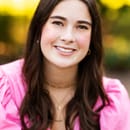Coachella 2024 was here for two glorious weekends and is now gone until next year. While I could write an entire article on how much FOMO I have from not seeing the lineup (Sabrina Carpenter, Lana Del Rey, Tyler, the Creator) or the fashion trends that took over Indio, I want to instead focus on a smaller aspect of Coachella: the marketing game.
Coachella began in 1999 as a two-day event. In 2001, it returned to Indio and has been active ever since, except in 2020 and 2021 due to the COVID-19 pandemic.
Revolve sent the first group of influencers to Coachella in 2013. These influencers were to use Revolve products during their time at Coachella and create content for Revolve. Coachella is a huge market for companies that are looking to reach people. On Tiktok, #Coachella2024 has over 85,000 posts and millions of views. Coachella is now known as the Influencer Olympics in many aspects. Sponsors range from car companies like BMW, clothing companies like H&M, drink companies like Dunkin’ Donuts, and skincare companies like Neutrogena. These companies partner with influencers (often those who are TikTok famous) by sending them to Coachella, and in return, the influencers make sure your For You page is flooded with products. A quick scroll through the hashtag gained videos of influencers getting ready with Neutrogena or Rare Beauty (a makeup brand) and then attending luxurious meals sponsored by food and drink companies. When scrolling through influencers who did attend (like Charli D’Amelio, you don’t see fit checks but behind-the-scenes and vlogs of them getting ready and going to these events. Influencers are not primarily there for music; it is simply another day in the “office” for them.
However, while there are marketing and brand deals all over Coachella, I want to talk about the brand that I thought “won” the Influencer Olympics.
Alix Earle is TikTok’s new It Girl. She became popular through “get ready with me” videos while attending the University of Miami. She was known for her real and unfiltered content about her daily life, showing off her natural skin and discussing the highs and lows of being a college student. She now has 6.6 million followers on TikTok and runs a successful podcast and YouTube channel: “Hot Mess with Alix Earle.”
Poppi is a drink company based in Austin, Texas. Its soda drinks combine fruit juice, apple cider vinegar, and prebiotics. They are designed to be a healthier alternative to soft drinks.
Now you may be asking: Hadley, what does a famous influencer and a drink company have to do with each other? Well, this unlikely pairing won the Influencer Olympics.
Poppi recently had a new launch of their lemon-lime soda, and they decided to do something different than the norm. Rather than share resources, they went all in on Alix Earle. They got her a house and decked it out in Poppi gear. The house was a fully immersive experience with exterior signage and interior design, and all of the serving stations had green and yellow colors with the Poppi logo. Earle posted roughly 20 Tiktoks from Coachella, and about 40% of them had Poppi in it, whether it was her holding a glass, having the logo in the background, or her doing a get-ready with me while having the green and yellow in the background.
They made Coachella amazing for Earle (buying her artist passes and getting her and her friends a private plane to the private house), which immensely paid off for them. Poppi experienced a 200% boost in sales following Earle’s weekend at Coachella and had one of the biggest launches in company history. Poppi had such a brilliant strategy because they didn’t just give Earle a product and ask her to post about it (which would result in one video) but gave her a natural variety throughout the house. She had a Poppi sweatshirt in one, Poppi pictures in another, her lounging on the Poppi pool floats, and even a chicken soup can that was Poppi branded on her bedside table. This variety even allowed her to work Poppi into videos in ways we wouldn’t expect (her saying “Bless Poppi” while holding the custom chicken soup after a fun night), which you wouldn’t get if just handing an influencer a product. Poppi even labeled items in the house with “CoachEarle” all around the house, making the consumer forget that this is explicitly a brand deal and partnership. It felt natural scrolling through Earle’s feed, and I admit, I am tempted to buy a lemon-lime Poppi after writing this article.
Do I think Poppi’s strategy will change how marketing looks at Coachella? No, I don’t. I still believe that most companies will stick with sending several products with several different influencers to get a wide reach. However, I think we will start seeing an increase in causal marketing, as I am dubbing it. We have started to see it with companies like Neutrogena sponsoring skincare classes with branded items all over or companies like Kendall Jenner’s 817 tequila having pop-ups with an excess of branded items.
Poppi clearly won the marketing battle this year, and I can’t wait to see who wins Coachella 2025.


